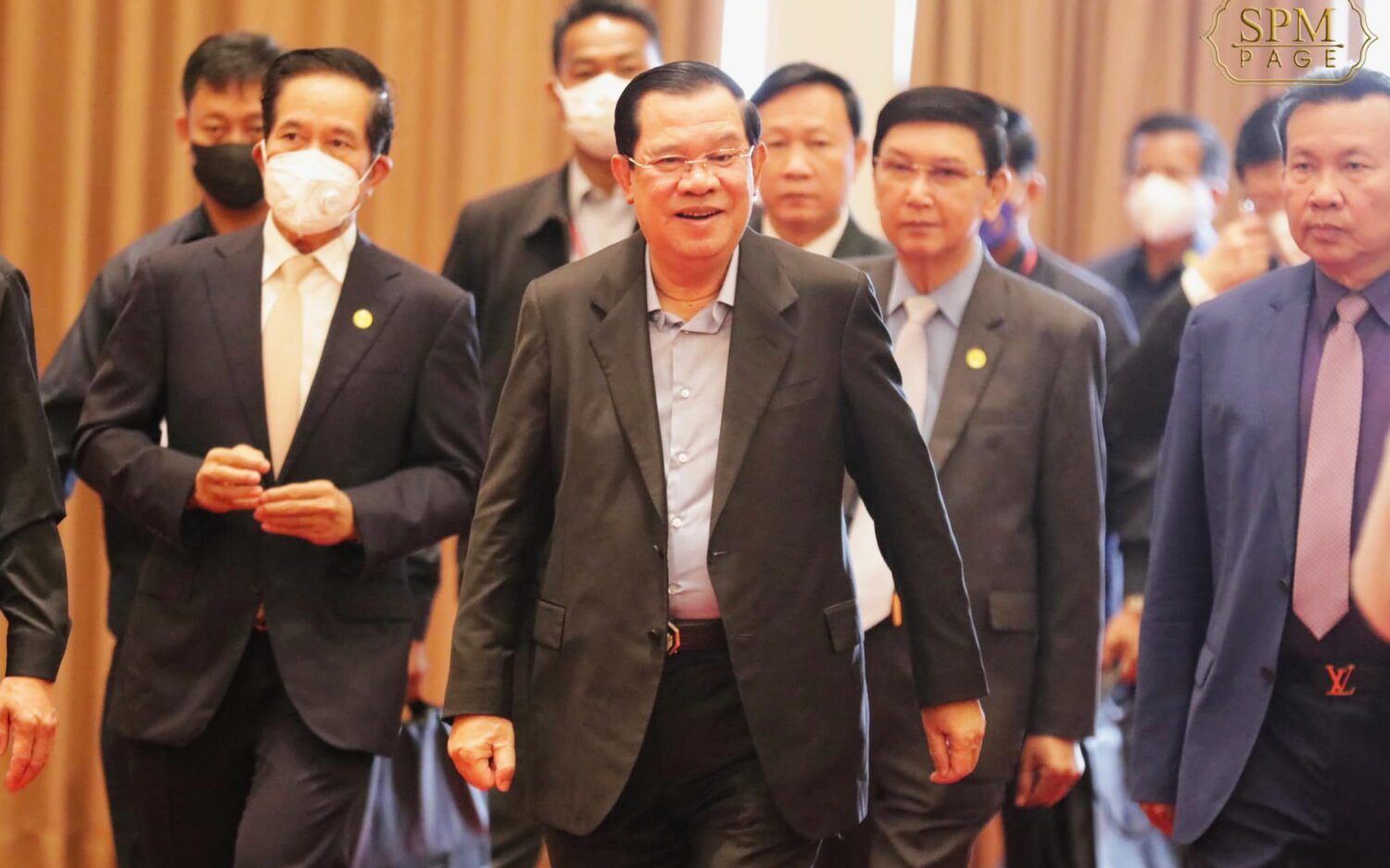Prime Minister Hun Sen defended recent tweaks to the Constitutional process of choosing new prime ministers, pointing to the U.K.’s revolving-door leadership as an example of a system with less parliamentary oversight than Cambodia.
Speaking at a graduation ceremony in Phnom Penh for more than 6,000 students from the Royal University of Law and Economics, Hun Sen said the events in England had given him an opportunity to explain recent Constitutional amendments, which have tweaked procedures related to transfers of power.
Some amendments clarified the power of caretaker governments, while others specified who would take over in the event of a prime minister’s death.
On Tuesday, Hun Sen focused on changes to Article 119 about who can propose new prime ministers to the king.
Previously, the National Assembly’s president and two vice presidents would make the proposal. Now, the party with the most seats in the Assembly would.
“[The events in] England will help some people who opposed our Constitutional amendments see clearly,” he said.
When Liz Truss took over from Boris Johnson — and, just a few weeks later, Rishi Sunak replaced Truss — the Conservative Party, as the largest party in parliament, had simply selected a new leader without taking the vote to the whole of parliament, Hun Sen said. Then the monarchy approved the decision.
In Cambodia, there would still be a further step of a vote in the National Assembly, he said. “The role of the parliament [in England] is almost none. For us, the National Assembly has a role.”
Hun Sen, in making his argument during the graduation speech, claimed to be responding to critics who had opposed the Constitutional amendments as reducing the National Assembly’s powers, though he did not name any of them.
Article 119
| Previous | Amendment* |
| Upon the proposal of the President of the National Assembly in agreement with the two Vice-Presidents, the King assigns a high ranking personality among the Members of National Assembly from the election winning party, to form the Royal Government. | Upon the proposal of a party with more seats than others in the National Assembly, the King assigns a high ranking personality as a Prime Minister to form the Royal Government. The proposal from the party with the most seats in the National Assembly must give a copy for the President of the National Assembly. A high ranking personality who would be appointed as a Prime Minister has to be a lawmaker with single Khmer nationality and has to be chosen from a party that has more seats than others in the National Assembly. |
| This assigned high ranking personality, accompanied by his collaborators who are Members of the National Assembly or members of the parties represented at the National Assembly and who are in charge of ministerial functions within the Royal Government, solicits the confidence from the National Assembly. | This assigned high ranking personality, accompanied by his collaborators who are Members of the National Assembly or members of the parties represented at the National Assembly and who are in charge of ministerial functions within the Royal Government, solicits the confidence from the National Assembly. |
| The vote of confidence has to be done on the list of members of the whole Council of Ministers. | |
| Once the National Assembly has voted the confidence, the King signs the Kret appointing the whole Council of Ministers. | Once the National Assembly has voted the confidence, the King signs the Kret appointing the whole Council of Ministers. |
| Before taking office, the Council of Ministers shall take oath according to the text written in Annex 6. | Before taking office, the Council of Ministers shall take oath according to the text written in Annex 6. |
| When finishing each of the legislative sessions of the National Assembly, the government supposed to leave the position has only duty on daily work until a new government takes office. |
*An unofficial translation based on a draft released during the amendment process.
Ou Chanrath, the founder of the Cambodia Reform Party, said on Tuesday that the change nevertheless whittled away at the National Assembly’s power.
“Trying to reduce the power of the National Assembly, the power of the lawmakers, I believe that it is a kind of reducing democracy,” Chanrath said.
He added that increased requirements in order to summon ministers to be questioned in the National Assembly were also problematic.
The U.K.’s democracy was much more well-established than Cambodia’s, he pointed out, though he said a prime minister should be selected by a general election rather than internally by a party.
Political analyst Lao Mong Hay said he also believed the amendments had reduced the power of the National Assembly.
But the bigger problem was not the rules themselves but lawmakers failing to fulfill their stated duties, he said. They should be active, debate among one another and advocate for their constituents, but instead they blindly followed party policy within a one-party parliament, Mong Hay said.
The ruling party’s stated reasons for changing the Constitution were an excuse, he said.
“This is the spirit,” he said. “They say the Constitution is an obstacle to state processes, but [their intentions] inside is not like that.”












